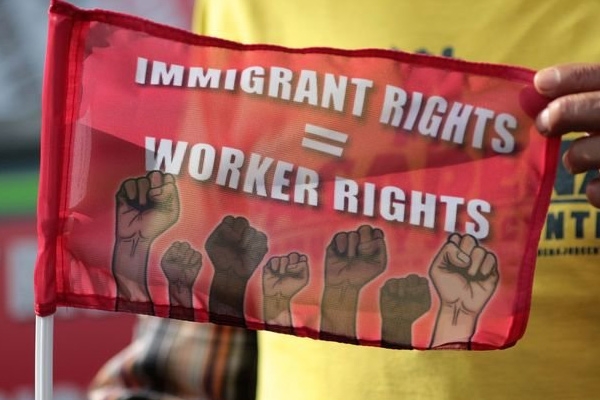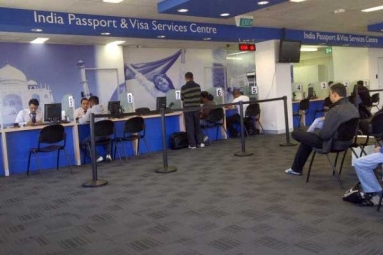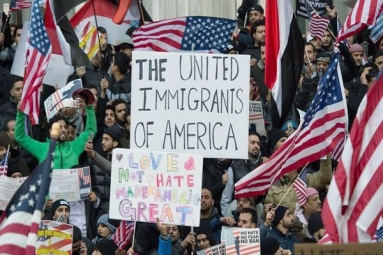
(Image source from: follownews)
The Dallas-based information technology (IT) Serve Alliance is elevating agony against the work-visa policies brought about recently by the Donald Trump administration.
The IT industry filed a lawsuit earlier this week against the United States Citizenship and Immigration Services (USCIS) for tightening the noose around the H-1B, a long-term work visa category.
ITServe Alliance is a non-profit trade group with more than 1,000 members.
"Like every employer in the IT industry, ITServe members have difficulty hiring enough US workers to meet the demand. Our members seek H-1B visas to fill the gap between the supply and demand for IT professionals in these specialized fields," ITServe president Gopi Kandukuri said in a statement.
Ever since Trump took office in January 2017, the federal agency in charge of work visas has issued a barrage of memos making the criteria to apply further rigorous and asking for more evidence before granting the visa or an extension, among other things.
These changes seem revengeful to ITServe members who have hired H-1B visa-holders. Almost all of the founding members of the organization and many of its board members are of Indian-origin - most H-1B beneficiaries as well hail from India.
In July, ITServe had filed another lawsuit against the USCIS against the Trump administration’s decision to restrict foreign workers to operate only from their employer’s premises and not on third-party sites.
The H-1B visa application process has become more cumbersome over the last year, the IT trade body says in its latest lawsuit.
Typically, it used to take between six and eight months to adjudicate initial H-lB petitions selected in the lottery or H-1B extension requests, including the government's demands for extra information through Requests For Evidence (RFEs). However, since the last year, timelines for both have been pushed to eight or more months, ITServe claims.
"The processing was so slow that many employees lost the work authorization status and had to stop working," Kandukuri said. In some cases, USCIS has even sent approval notices to employers over expired visas.
While the H1-B was earlier typically issued for a three-year period, last year, the USCIS allocated the visas for much shorter periods, further restricting the use of manpower for companies.
By Sowmya Sangam










